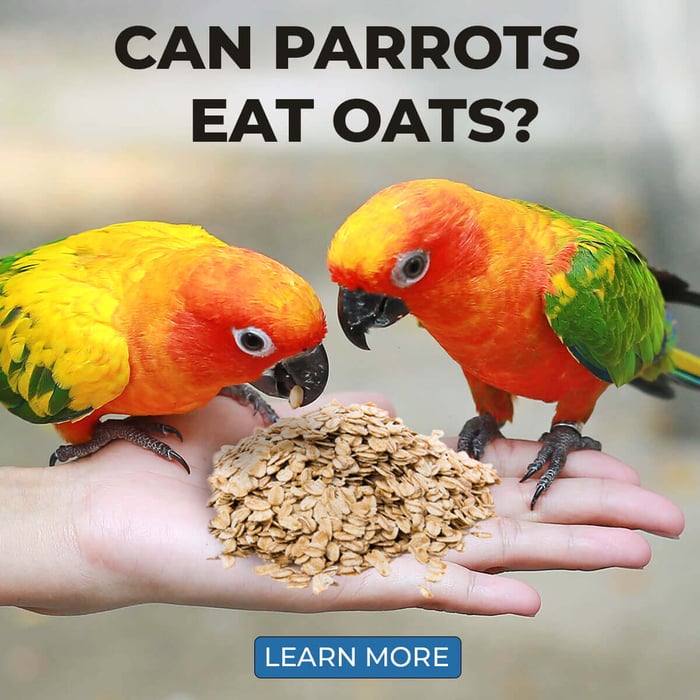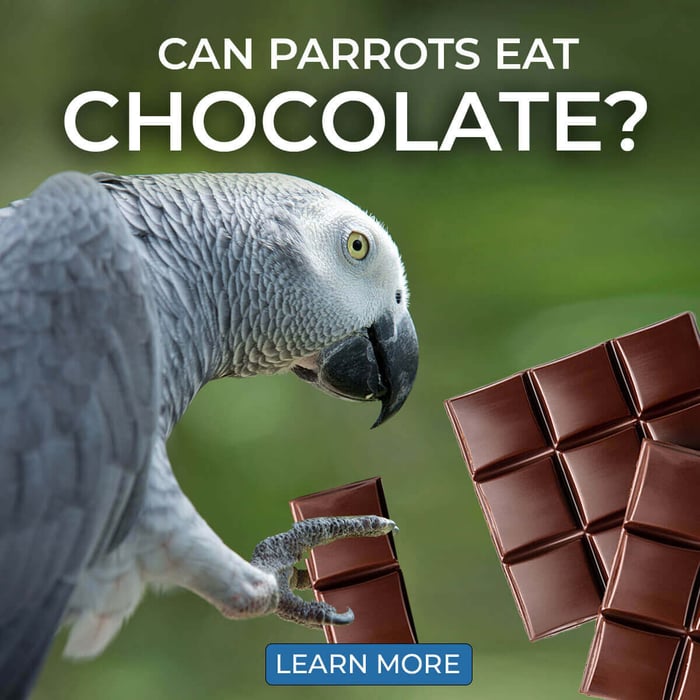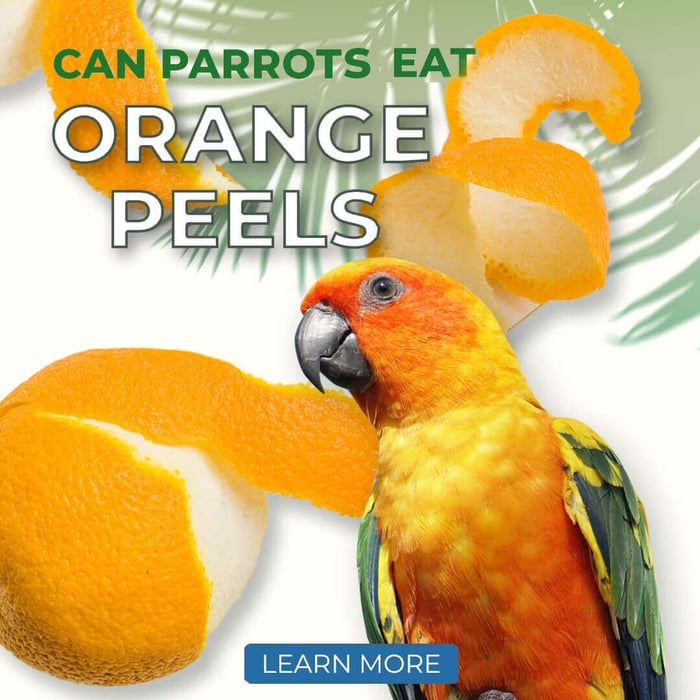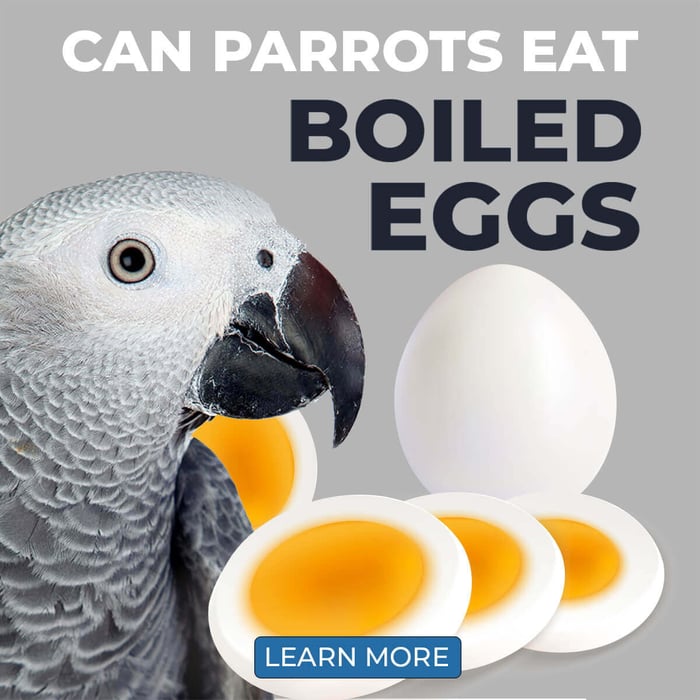What Fruits Can Parrots Eat?
As parrot owners, we all want the best for our birds, and that includes a healthy diet. You’ve probably wondered about fruit, as this seems like a natural choice for these tropical birds. What fruits can parrots eat?
Most fruits that are safe for humans are safe for parrots. Fruits offer great nutritional value, which is crucial to their growth and overall well-being.
What Do Parrots Eat?
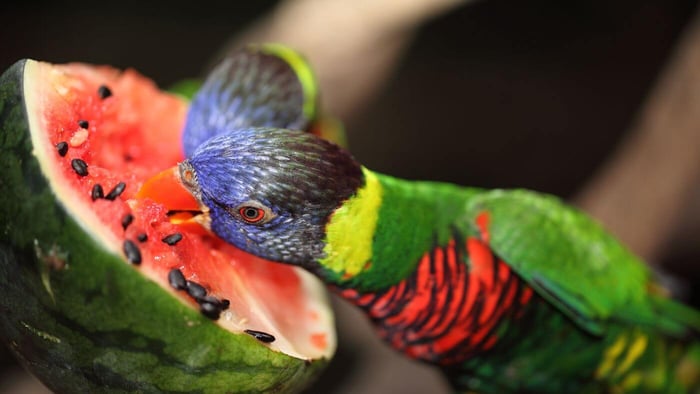
Parrots are omnivores, although they lean towards herbivory. Their natural diets vary by species, but many parrots do eat fruit. In fact, some are considered frugivores, meaning fruit actually makes up the bulk of their diet. Depending on where the species naturally occurs, parrots will eat things like palm fruit (which is high in fat and offers plenty of energy), West Indian locust tree fruit, wild figs and more.
When it comes to domestic parrots, a varied diet is key. Fruit can absolutely form part of that, especially since different fruits provide a range of healthy (micro)nutrients.
Are Fruits Good For Parrots?
Most parrots will love fruit and happily eat it if you offer it to them. And yes, fruits are good for parrots, but it’s important to keep in mind the difference between the fruits that our birds eat in the wild and the selection we can offer them in our homes.
Something like a wild fig, which forms part of wild parrots' diets, is not at all like the figs we humans eat. “Human” figs have been selectively bred for big fruits full of sugar, which gives it that flavour we love. Wild figs, and wild fruits in general, are less sugary, more starchy and may not even be eaten by the birds in their ripe state.
All this means that, although fruit is absolutely good for parrots, you shouldn’t overdo it. Their bodies aren’t used to the amount of sugar that fruits cultivated for human consumption contain! Still, offering smaller amounts one or more times a week will help keep your parrot entertained and help ensure it gets all the (micro)nutrients it needs.
This article will explore what fruits can parrots eat. We will also examine what makes them good and healthy. Before we conclude the article, there will be a section on fruits unsuitable for parrots.
Tip: If your parrot doesn’t seem interested in fruit, keep trying. It may not be realised yet that fruits are food, especially if they have been fed an all-seed or all-pellet diet for all of their lives. Try tricks like pretending to eat the fruit yourself, placing a mirror next to it or sprinkling pellets and seeds on top. Your bird will understand eventually!
What Fruits Can Parrots Eat?
The Best Fruits For Parrots
1. Bananas
Many birds and humans love these long white fruits. The bright yellow outer colour makes it attractive to many birds. It is soft, making it irresistible and effortless for the parrot to consume. You can also feed plantain, banana’s starchier cousin.
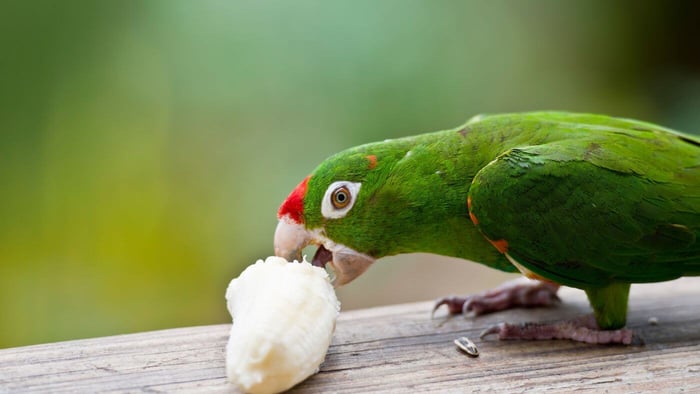
Allowing it to peel the banana itself is a terrific way to introduce foraging activity to your domesticated parrot. Bananas are rich in various vitamins and minerals like:
- Vitamin B6
- Vitamin C
- Magnesium, etc.
Some of the benefits of bananas for your parrots are:
- Rich in antioxidants
- Assist in weight loss
- Boost blood sugar level
- Support digestive health
2. Papaya
Parrots love papaya due to its fantastic taste. It is a tropical fruit that is juicy, soft, and easy to tear. The fruit can also provide a nutritional supplement for the parrots and contains various important nutrients like vitamins A, C, B9, calcium, potassium, and magnesium. The seeds are also safe for your parrot to consume.
Papaya is rich in carotenoids, a particular type of antioxidant responsible for the orange shape. Lycopene, another antioxidant present in papaya, offers benefits for your parrots’ skin, feathers, and brain.
3. Berries
Humans consume several types of berries. As long as it is safe for human consumption, your bird will love it. Your parrot can snack on raspberries, strawberries, blueberries and many more.
Berries stand out due to the unique flavour, often both tart and sweet, that will stimulate your parrot’s taste buds. They are rich in antioxidants and vitamins and are responsible for optimum health and a strong physique for your bird. And there are so many different berries out there that it will never get bored!
Other benefits of berries for your parrots are
- Rich in nutrients
- Can help reduce inflammation level
- High in fibre
- Good for the skin
- Improves the immune system
4. Cherries
These small wonder fruits are rich in fibre, minerals, and vitamins. Inherent in cherries are potassium, polyphenol, and vitamin C. They are low in calories, with abundant vitamins that boost the bird’s metabolism. Also, the moderate water content helps rid the parrot’s body of toxins.
According to research, cherries can reduce inflammation. They can also reduce oxidative stress.
Before feeding cherries to your parrot, get rid of the pits due to the arsenic content.
5. Starfruit
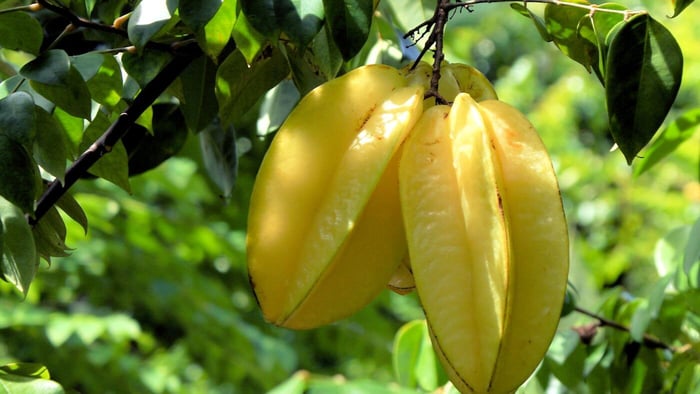
This fruit looks like a sprawling star, hence the name. There are different types: yellow and green, larger and smaller. The small type is usually sour, while the larger type is delicious and almost similar in flavour and texture to a grape.
Whatever the type of starfruit, they are rich in various nutritional values for your bird. Starfruit contains abundant copper, potassium, magnesium, folate, vitamin C, and B5. Other benefits are improved inflammation and digestion, benefits the heart, boosted immunity, and keeping weight healthy.
Not only that, but starfruit also has many antioxidants that help reduce inflammation in your bird.
6. Apples
Apples are delicious and nutritious: a healthy addition to your parrot’s meal. Most parrots love apples and will welcome them, and they contain high levels of fibre and antioxidants. They also promote a healthy body weight and can limit constipation. You can leave the skin on!
Do remember to remove apple seeds. They contain traces of cyanide, and although the chances of trouble are small, it’s better to be safe than sorry.
7. Cranberries
Many people cook cranberries before eating due to the sour taste. Your parrot, however, will not mind the tangy flavour. Cranberries are rich in fibre, copper, manganese, vitamin C, vitamin K, and vitamin E.
Your parrot will benefit from cranberries as they can reduce urinary tract infections. It can protect your bird’s urinary tract infection by preventing E.coli from attaching to the bladder. Other benefits of cranberry to your parrots are:
- Reduce inflammation
- Better digestive health
- Strengthens the immune system
- Better eyesight
The abundant antioxidants in cranberries also help lower the risk of heart disease.
8. Grapes
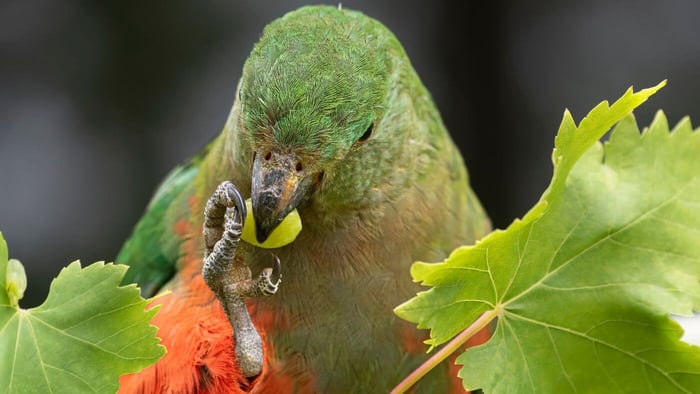
Almost all birds love grapes, as the fruits are deliciously sweet and crunchy. The high fructose level makes them very tasty, but as discussed earlier, it also means that you shouldn’t overfeed them. Half a grape at a time is more than enough, especially for smaller parrot species.
Some benefits of grapes include:
- Boosting the immune system
- It keeps them active and the brain sharp
- It helps make the bone strong
- Protect the heart
9. Figs
Parrots love figs due to their sweet flavour and exceptional texture. Figs are abundant in vitamins and minerals like copper, vitamin K, vitamin B6, calcium, and potassium.
Vitamin B6 helps break down protein and assists in the formation of new proteins. It also helps keep the brain healthy. Vitamin A assists with bone health and supports blood clotting in case of injury. Figs are nutritious, control blood pressure, and help maintain a healthy weight.
10. Oranges
Oranges are great tasting and a terrific source of Vitamin C for the immune system. Keeping your feathered friend healthy should be a priority, and oranges can help you achieve this.
Oranges are rich in fibre, which helps keep the blood sugar level in check. It also contains calcium, which is essential for strong bones. The potassium content regulates heartbeat and keeps muscle function optimal, while natural sugars help satisfy your bird’s sweet tooth.
11. Watermelon
Even though more than 90% of watermelon content is water, it also contains other nutrients. The fruit is rich in vitamin A, vitamin B, vitamin C, magnesium, potassium, and various antioxidants.
It will help keep your bird hydrated, ensuring all body functions are running. Besides, it protects the heart and reduces oxidative stress.
12. Apricots
Apricot can be beneficial for your parrot, as it contains a wide array of vitamins and minerals, including vitamin A, vitamin C, vitamin E, beta-carotene, flavonoids, etc.
The peel is pretty nutritious, so aside from the seeds, no part of this healthy fruit should be wasted. Apricots can boost skin health, promote vision, and are rich in antioxidants. Not only that, but it is also low in calories. Just make sure your parrot doesn’t eat the seed, as it’s considered unsafe and mildly toxic.
Fruits to Avoid Giving Your Parrot
1. Avoid Processed Fruits
Canned fruits are rich in added sugar like fructose, corn syrups, and various sweetening agents, none of which is something a parrot’s body will be able to process properly.
You could consider naturally dried fruits, although it’s important to keep in mind that they’re high in concentrated sugars as a result of the drying process. You can dry fruit at home in a dehydrator. If you go for store-bought, make sure there’s no added sulfur, which is commonly used in dried fruit to preserve its bright colour but is bad for your parrot’s health.
2. One Unsafe Fruit
Almost all fruit types that humans consume are suitable for your parrots. One notable exception is the avocado, which is toxic to birds. If your parrot accidentally consumes some, you should contact your avian vet right away. Adverse reactions to watch out for are changes in appetite, lethargy, isolation, diarrhoea, weight loss, etc.
Aside from avocados, as briefly mentioned earlier, some fruit pits and pips contain traces of toxins. Remove the pits from stone fruit like cherries, peaches, plums and apricots, as well as from apples, before offering them to your bird. Again, the chances of issues occurring are slim, but most parrot owners prefer to be safe rather than sorry.
Conclusion
So, what fruits can parrots eat? As you’ve hopefully concluded, fruit is a good regular addition to your pet bird’s diet. Almost all fruit types are safe, although they’re a little too high in sugar to feed daily. The only fruit that’s explicitly toxic to parrots is avocado.
Avoid processed fruits for your parrot, especially if they’re canned in syrup or dried fruits with added sulfur.
Luescher, A. (Ed.). (2008). Manual of parrot behaviour. John Wiley & Sons.

